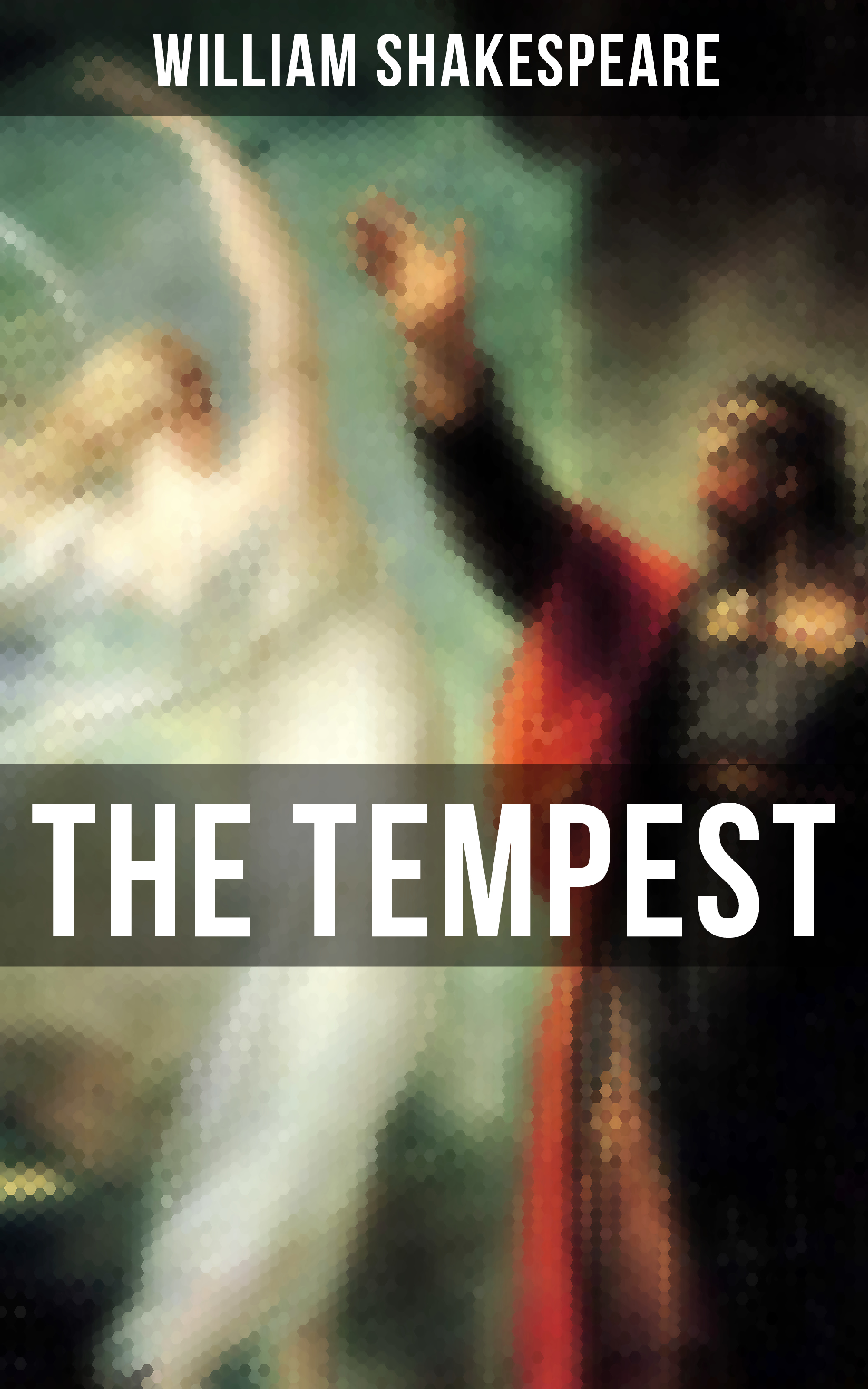Ding-dong.]
Hark! now I hear them—ding-dong, bell.
FERDINAND.
The ditty does remember my drown’d father.
This is no mortal business, nor no sound
That the earth owes:—I hear it now above me.
PROSPERO.
The fringed curtains of thine eye advance,
And say what thou seest yond.
MIRANDA.
What is’t? a spirit?
Lord, how it looks about! Believe me, sir,
It carries a brave form:—but ‘tis a spirit.
PROSPERO.
No, wench; it eats and sleeps, and hath such senses
As we have, such; this gallant which thou see’st
Was in the wrack; and but he’s something stain’d
With grief,—that beauty’s canker,—thou mightst call him
A goodly person: he hath lost his fellows
And strays about to find ‘em.
MIRANDA.
I might call him
A thing divine; for nothing natural
I ever saw so noble.
PROSPERO.
[Aside] It goes on, I see,
As my soul prompts it.—Spirit, fine spirit! I’ll free thee
Within two days for this.
FERDINAND.
Most sure, the goddess
On whom these airs attend!—Vouchsafe, my prayer
May know if you remain upon this island;
And that you will some good instruction give
How I may bear me here: my prime request,
Which I do last pronounce, is,—O you wonder!—
If you be maid or no?
MIRANDA.
No wonder, sir;
But certainly a maid.
FERDINAND.
My language! Heavens!—
I am the best of them that speak this speech,
Were I but where ‘tis spoken.
PROSPERO.
How! the best?
What wert thou, if the King of Naples heard thee?
FERDINAND.
A single thing, as I am now, that wonders
To hear thee speak of Naples. He does hear me;
And, that he does, I weep: myself am Naples,
Who with mine eyes,—never since at ebb,—beheld
The King, my father wrack’d.
MIRANDA.
Alack, for mercy!
FERDINAND.
Yes, faith, and all his lords, the Duke of Milan,
And his brave son being twain.
PROSPERO.
[Aside.] The Duke of Milan,
And his more braver daughter could control thee,
If now ‘twere fit to do’t.—At the first sight [Aside.]
They have changed eyes;—delicate Ariel,
I’ll set thee free for this!—[To FERDINAND] A word, good sir:
I fear you have done yourself some wrong: a word.
MIRANDA.
[Aside.] Why speaks my father so ungently? This
Is the third man that e’er I saw; the first
That e’er I sigh’d for; pity move my father
To be inclin’d my way!
FERDINAND.
[Aside.] O! if a virgin,
And your affection not gone forth, I’ll make you
The Queen of Naples.
PROSPERO.
Soft, sir; one word more—
[Aside] They are both in either’s powers: but this swift
business I must uneasy make, lest too light winning
Make the prize light. [To FERDINAND] One word more:
I charge thee
That thou attend me. Thou dost here usurp
The name thou ow’st not; and hast put thyself
Upon this island as a spy, to win it
From me, the lord on’t.
FERDINAND.
No, as I am a man.
MIRANDA.
There’s nothing ill can dwell in such a temple:
If the ill spirit have so fair a house,
Good things will strive to dwell with’t.
PROSPERO.
{To FERDINAND] Follow me.—
[To MIRANDA] Speak not you for him; he’s a traitor.—
[To FERDINAND] Come;
I’ll manacle thy neck and feet together:
Sea-water shalt thou drink; thy food shall be
The fresh-brook mussels, wither’d roots, and husks
Wherein the acorn cradled. Follow.
FERDINAND.
No;
I will resist such entertainment till
Mine enemy has more power.
[He draws, and is charmed from moving.]
MIRANDA.
O dear father!
Make not too rash a trial of him, for
He’s gentle, and not fearful.
PROSPERO.
What! I say,
My foot my tutor? Put thy sword up, traitor;
Who mak’st a show, but dar’st not strike, thy conscience
Is so possess’d with guilt: come from thy ward,
For I can here disarm thee with this stick
And make thy weapon drop.
MIRANDA.
Beseech you, father!
PROSPERO.
Hence! Hang not on my garments.
MIRANDA.
Sir, have pity;
I’ll be his surety.
PROSPERO.
Silence! One word more
Shall make me chide thee, if not hate thee. What!
An advocate for an impostor? hush!
Thou think’st there is no more such shapes as he,
Having seen but him and Caliban: foolish wench!
To the most of men this is a Caliban,
And they to him are angels.
MIRANDA.
My affections
Are then most humble; I have no ambition
To see a goodlier man.
PROSPERO.
[To
